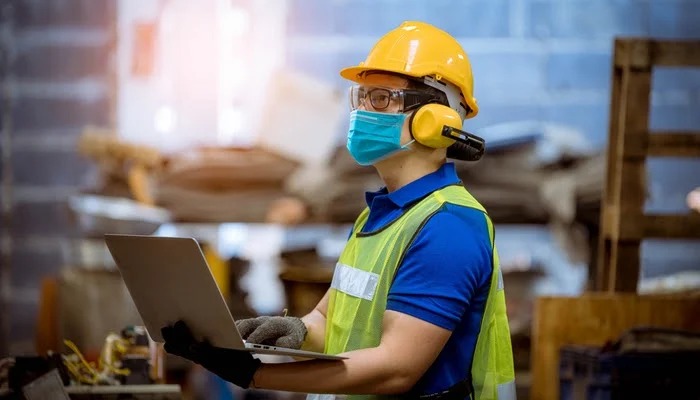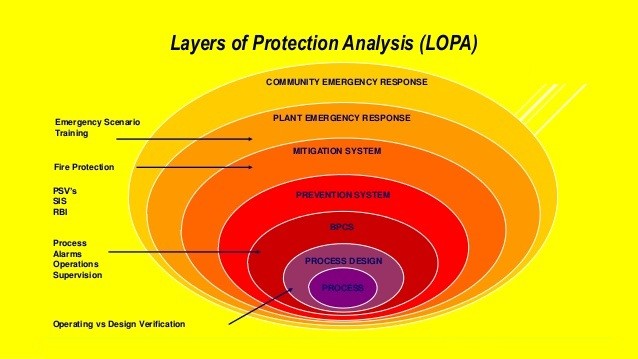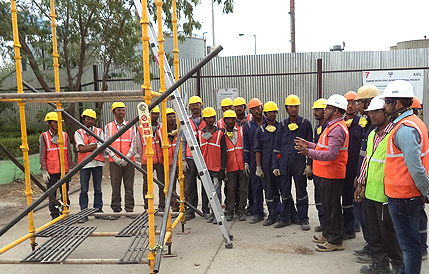The Role of Industrial Hygiene Audits in Achieving Safe Workplaces

The Hidden Threat: Understanding the Dangers of Dust Explosions
June 8, 2023
Ergonomic Assessments: A Powerful Tool for Boosting Workplace Productivity
June 9, 2023The Role of Industrial Hygiene Audits in Achieving Safe Workplaces
In this article, we discuss the critical role of industrial hygiene audits in ensuring the safety of workers in the workplace. As regulatory bodies continue to enforce more stringent health and safety standards, businesses are under increased pressure to demonstrate compliance with the ever-changing regulations. By the end of this article, you’ll understand how industrial hygiene audits can help your business navigate regulatory compliance and achieve a safer, more productive workplace for your employees.
Introduction
Workplace safety is a crucial aspect of any industry. However, ensuring a safe work environment can be challenging, especially with the ever-evolving nature of job hazards. Industrial hygiene audits are an effective way to identify and mitigate workplace risks that can lead to accidents and injuries. In this article, we will discuss the role of industrial hygiene audits in achieving safe workplaces, the benefits they offer, and how organizations can implement their recommendations
The Benefits of Industrial Hygiene Audits
Industrial hygiene audits play a critical role in ensuring that workplaces remain safe and healthy for employees. The benefits of these audits cannot be overstated, particularly in industries where workers face a range of potential hazards on a daily basis. By identifying potential risks and recommending solutions to reduce exposure levels, industrial hygiene audits help to protect workers from illness, injury, and even death.One key benefit of industrial hygiene audits is that they help employers comply with regulations set by government bodies such as OSHA. By identifying areas where companies may be falling short of regulatory requirements, auditors can help to reduce the risk of penalties or fines. In addition, by creating a safer work environment through implementing audit recommendations, companies can improve their reputation and attract more skilled workers who value safety.
Another benefit of industrial hygiene audits is that they can lead to cost savings for companies in the long term. By reducing the frequency and severity of accidents or illnesses caused by workplace hazards, companies can save money on medical expenses, insurance premiums, and lost productivity due to worker absences. This makes investing in an industrial hygiene audit a wise financial decision in addition to being an ethical one.
How to Implement Recommendations from Industrial Hygiene Audits
In order to ensure that the recommendations from industrial hygiene audits are implemented effectively, it is important to have a robust management system in place. This system should include a clear plan for addressing each recommendation, as well as designated individuals responsible for overseeing the process.One effective approach is to establish a corrective action team that is responsible for reviewing each recommendation and developing an action plan. This team should include representatives from various departments within the organization, including management, health and safety, and operations.
Once an action plan has been developed, it is important to communicate it clearly to all relevant stakeholders. This includes providing regular updates on progress and addressing any concerns or issues that arise. By following these steps, organizations can ensure that they are able to effectively implement recommendations from industrial hygiene audits and achieve safer workplaces for all employees.
The Role of Industrial Hygiene Audits in Preventing Workplace Accidents
Industrial hygiene audits play a critical role in preventing workplace accidents. By identifying potential hazards and evaluating the effectiveness of existing safety measures, these audits allow organizations to proactively implement improvements that can significantly reduce the risk of accidents and injuries. One of the key ways in which industrial hygiene audits prevent workplace accidents is by identifying risks before they can become actual incidents. For example, an audit might reveal that a particular piece of equipment is not being maintained properly or that employees are not using protective gear as required. By addressing these issues before they result in accidents, organizations can save lives, reduce costs associated with injuries and fatalities, and promote a culture of safety.
In addition to identifying specific hazards, industrial hygiene audits also help organizations assess the overall effectiveness of their safety programs. By evaluating factors such as training procedures, emergency response plans, and incident reporting systems, auditors can provide valuable insights into areas for improvement that might not be immediately obvious. Ultimately, this holistic approach can help organizations create more comprehensive safety programs that are tailored to their unique needs and risk profiles.
Common Challenges of Industrial Hygiene Audits and How to Overcome Them
One of the biggest challenges of industrial hygiene audits is ensuring that all areas of a workplace are thoroughly evaluated. It can be easy to overlook certain sections or equipment, leading to important safety issues being missed. One way to overcome this challenge is by establishing a comprehensive checklist that covers every aspect of the workplace. Employers can then use this checklist to conduct regular self-audits and ensure that all areas are being properly evaluated.Another challenge is communicating the findings and recommendations from an audit to employees in a clear and effective manner. This is especially important because employees play a critical role in maintaining a safe workplace. To overcome this challenge, employers can provide training sessions for all employees, explaining the importance of industrial hygiene audits and how they can contribute to creating a safer work environment. When employees understand why these audits are necessary, they become more invested in ensuring their own safety and the safety of their colleagues.
A final challenge is overcoming resistance from management or other stakeholders who may be resistant to implementing recommended changes or investing in necessary equipment or resources. To address this issue, it’s important for auditors to clearly articulate the potential long-term benefits of implementing these changes, such as decreasing absenteeism due to injury or preventing costly fines for non-compliance with safety regulations. By emphasizing these benefits and demonstrating how they align with company goals, auditors may be able to persuade management and other stakeholders to take action towards improving workplace safety through industrial hygiene audits.
The Future of Industrial Hygiene Audits
The Future of Industrial Hygiene AuditsAs technology continues to advance, the future holds exciting prospects for industrial hygiene audits. New tools and techniques will enable auditors to identify and mitigate hazards in the workplace more efficiently and effectively than ever before.
One such technology is the Internet of Things (IoT), which allows for real-time monitoring of workplace conditions such as temperature, humidity, and air quality. This data can then be used to inform decisions about how to make the workplace safer and healthier.
Additionally, advancements in artificial intelligence (AI) will enable auditors to analyze vast amounts of data quickly, identifying potential hazards before they become serious issues. This will save time and resources while also improving overall safety in the workplace.
Overall, the future of industrial hygiene audits is bright. As we continue to innovate and improve our methods, we can look forward to safer, healthier workplaces for everyone.
Conclusion
In conclusion, industrial hygiene audits play a crucial role in ensuring safe workplaces for employees. By identifying potential hazards and providing recommendations for improvement, these audits can prevent accidents before they occur and increase the overall http://www.thesafetymaster.com/safety of the workplace. However, it is important to recognize that implementing these recommendations requires dedication and resources from management. Despite the challenges, by recognizing the value of industrial hygiene audits and taking action to address identified issues, employers can create a safer workplace for their employees and ultimately contribute to a healthier society overall.
At TSM TheSafetyMaster Private Limited we offer following services
TSM TheSafetyMaster® Private Limited
Unit No 221-451-452, SPL1/J, 2nd & 4th Floor, Sunsquare Plaza Complex, RIICO Chowk, Bhiwadi 301019, Rajasthan, India
Phone: +91 1493 22 0093
Mobile: +91 7665231743/9413882016
Email: info@thesafetymaster.com




